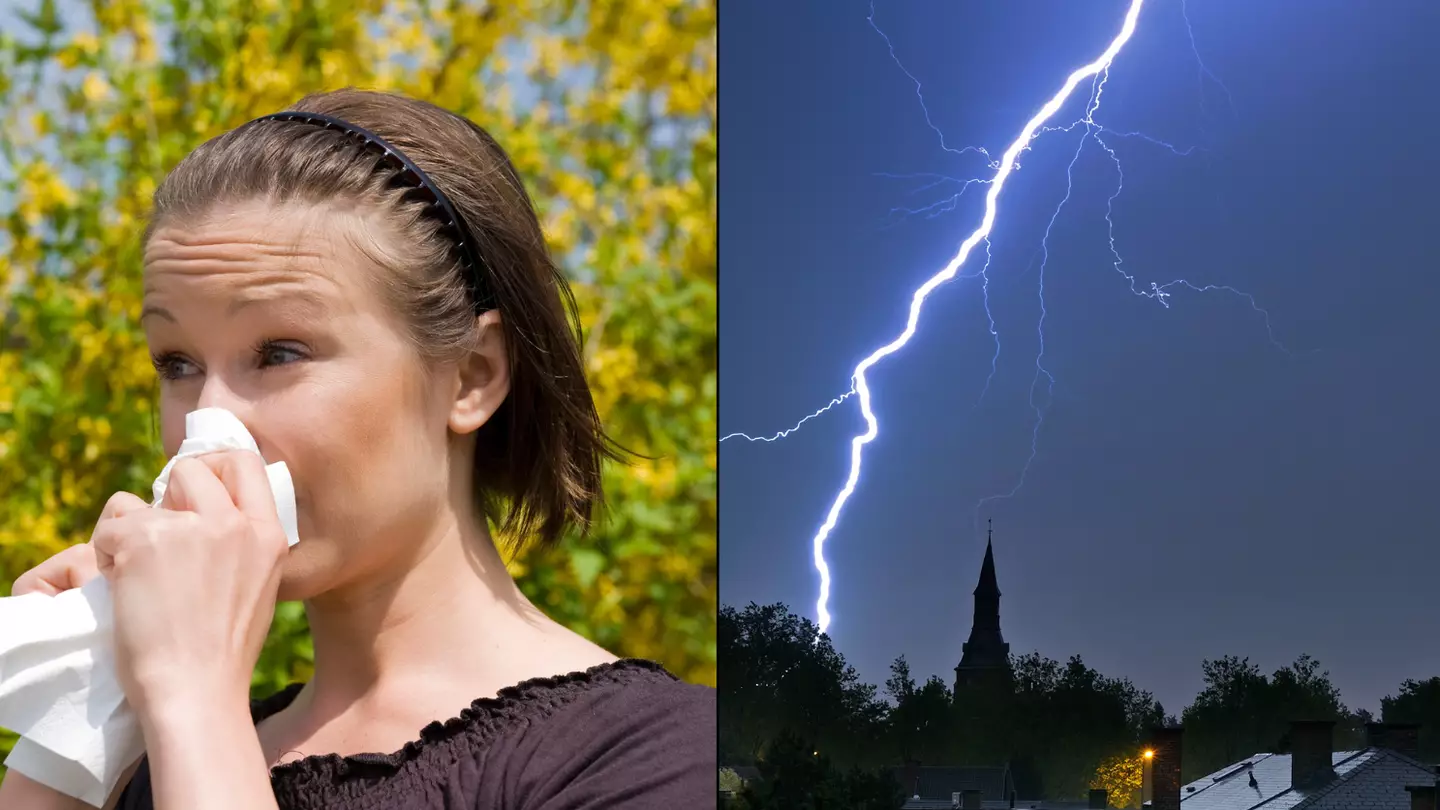
As Storm Alex approaches, millions of hay fever sufferers have been warned that pollen counts will be 'high or 'very high' across England and Wales by Friday.
The UK will face 'unseasonably' strong winds predicted to reach up to 55mph as ex-tropical storm Alex reaches the UK.
Despite causing disruption across Florida, the tropical storm will have lost most of its power by the time it reaches Britain. However, strong winds and thunderstorms are still on the cards for Brits across the country.
The Met Office has already issued yellow thunderstorm warning, with thunderstorms expected to hit the north of England and south of Scotland.
Advert
Hay fever sufferers have also been warned that they could be hit with 'thunder fever' – an extreme version of hay fever caused by the high pollen count, high temperatures and thunderstorms.
Airborne allergens expert Max Wiseberg, creator of the HayMax allergen barrier balm, said: 'With this fine weather thunderstorms are also predicted, and they can bring problems for hay fever sufferers."
Southern and eastern England are expected to hit a 'very high' pollen count by tomorrow and then across most of England by Friday. The pollen count is expected to be 'low' in Scotland, 'medium' in Northern Island and 'high' in Wales.
Unfortunately for those who dread the season of runny noses and itchy eyes, the looming stormy weather could make allergies worse instead of better.
Wiseberg explained that the predicted thunderstorms would not give 'respite' to hay fever sufferers as the high pollen count and high temperatures create a phenomena referred to as 'thunder fever'.

He added: "This appears to be more allergenic than normal pollen, causing more severe reactions in sufferers. Storms bring pollen grains down which might have otherwise risen above head height out of harm's way and whipping up pollen grains and fungal spores near the ground."
Meanwhile, Met Office Deputy Chief Meteorologist Adam Thornhill said: "The track of the former storm currently looks to be grazing the far northwest of the UK on Thursday and Friday and, although the details are still being worked out, winds could be around 45mph for most in the north of the UK, with a chance of some gusts in excess of 55mph in some exposed northwestern island and coastal areas."
Spokesperson Oli Claydon has confirmed that the storm will lose its strength as it progresses over the weekend.
He said: "It will be windy everywhere across the UK, but the further south you go, the less influence the low pressure will have."
The Met Office has warned that travel disruption can also be expected, with a small chance that homes and businesses could be flooded quickly.
